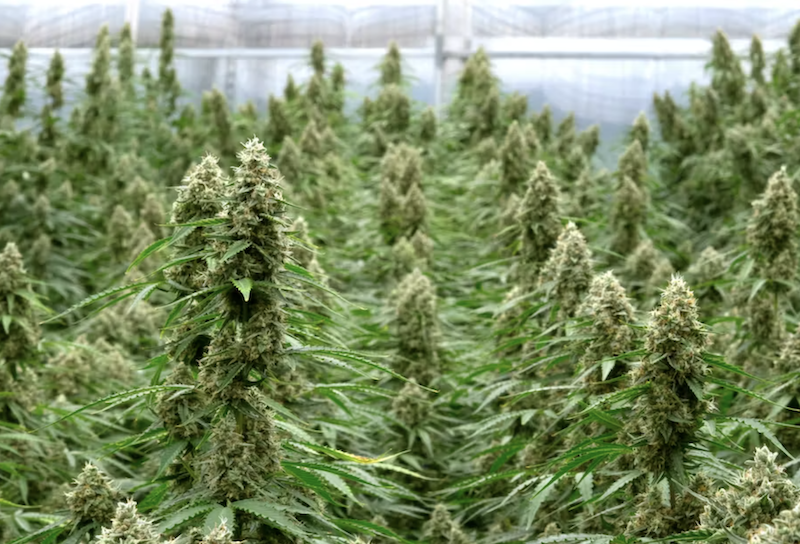Features
Known as ‘diet weed,’ THCV hits Canadian cannabis market
Published on November 3, 2023 by David Wylie
 Photo: Adobe stock/the oz.
Photo: Adobe stock/the oz. So called “diet weed,” a.k.a. THCV, is the latest niche cannabinoid to trickle into the Canadian cannabis market.
At least two cannabis companies with a strong presence in the edibles category are trying to stand out through THCV-infused products.
In October, Cannabis corporation Cronos anounced Spinach Feelz gummies (10mg THC/20mg THCV) and vapes (7:1 ratio THC/THCV) that both feature the cannabinoid. That was on the heels of Organigram’s launch of THCV gummies in August under its SHRED’ems and Trailblazer brands.
Does THCV actually help with appetite?
The minor cannabinoid THCV is having a time in the spotlight, covered across the media from Men’s Health to the New York Times.
In Mashable’s Can ‘diet THC’ stop the munchies? I tried every kind to find out, Chris Taylor explored all the THCV products he could find in California to see if any actually work—spoiler alert: they do, erm kind of.
“Ultimately, THCV is not one-strain-fits-all,” he concludes.
“Scientists and cannabis marketers are going to have a hell of a time figuring out how to ascertain the extent to which it works and how to pitch it to a diet fad-hungry populace. Your level of resistance to chocolate stimuli may vary. You may find it easy or hard to avoid the tipping point where it starts to make you hungrier. Or you may find that it’s not psychoactive enough for your tastes.”
 Photo: Contributed/Phylos
Photo: Contributed/Phylos THCV has CEO tongue twisted
Regulations under the Cannabis Act prevent cannabis companies from making health claims.
That can sometimes cause corporations to tap dance in their messaging, such as Cronos CEO Mike Gorenstein: “Our expertly-crafted formulation offers its own unique and differentiated experience, perfect for when you’re in the mood to turn the world on its head and see where you end up.”
Organigram opted for the opposite approach, direct statements about its appetite suppression and energy (which has caused some to call THCV ‘weederall.’)
The company has invested significantly in growing high-THCV cultivars at its Moncton, N.B., facility.
“We are currently the only licensed Canadian cannabis company to be cultivating and extracting from THCV flower, meaning that our products are made from the entire cannabis flower, including cannabinoids, terpenes, flavonoids, and other compounds,” says Organigram’s VP of innovation and R&D Borna Zlamalik.
THCV isn’t just hype
There’s evidence that non-psychoactive THCV can reduce sugar cravings, including a study by Florida university researchers into THCV’s potential therapeutic benefit for the management of obesity and diabetes.
“It is envisioned that the unique and diverse characteristics of THCV could be explored for further development into clinically useful medicines for the treatment of life-threatening diseases,” say researchers in the study published in the US federal government’s National Library of Medicine.
Leave a comment on our Facebook page.
© Copyright 2023 Okanagan Z. | About the oz.
Report a Typo or Inaccuracy
We strive to avoid typos and inaccuracies. However, on occasion we make mistakes. We value your contributions and help in correcting them.